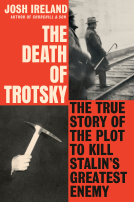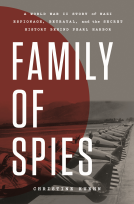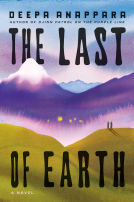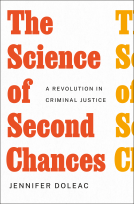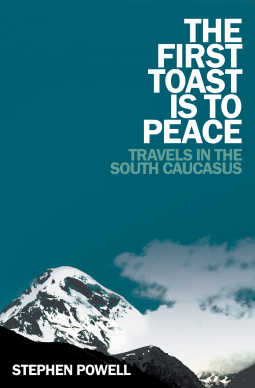
The First Toast is to Peace
Travels in the South Caucasus
by Stephen Powell
This title was previously available on NetGalley and is now archived.
Send NetGalley books directly to your Kindle or Kindle app
1
To read on a Kindle or Kindle app, please add kindle@netgalley.com as an approved email address to receive files in your Amazon account. Click here for step-by-step instructions.
2
Also find your Kindle email address within your Amazon account, and enter it here.
Pub Date Jan 22 2018 | Archive Date Aug 16 2018
Talking about this book? Use #TheFirstToastIsToPeace #NetGalley. More hashtag tips!
Description
'The First Toast is to Peace: Travels in the South Caucasus' brings alive a captivating part of the globe that the English-speaking world has been slow to appreciate. Stephen Powell, a British journalist, travelled through remote fastnesses in Georgia, Azerbaijan and Armenia, and lost his heart to the Caucasus. The rugged beauty of the mountains, higher than the Alps, a strong sense of history and enduring traditions of hospitality give the region a flavour all of its own. Change came slowly to the Caucasus and in one part of Georgia the men wore chainmail armour until the 1930s.
'The First Toast is to Peace' leads the reader through these complex lands with first-hand accounts of distant trails, forays into history and conversations with local people about their hopes for the future. The narrative provides answers to questions great and small. How is Stalin regarded today in his native Georgia? How do you reach Khevsureti by horse? What is life like in Europe’s forgotten war zone, Nagorno-Karabakh?
Advance Praise
Average rating from 9 members
Featured Reviews
I sat down to read this book today and my love for travel and adventure was piqued. The author travels through Georgia, Armenia and Azerbaijan and for someone who comes from the African continent, I loved his descriptions of the terrain and the people he encountered. I especially loved chapter eight in this book where a bit of culture seems to involve swords and couldn't help laughing at how quirky he's outlook was. With history there's also the stories that we never hear or never talk about like the Armenian genocide of which I only came across in this book and had to look it up to learn more about it.
If you love travel, culture, good writing and seek to read a travel diary, then this book is right up your alley. Thanks NetGalley for the eARC.
 Reviewer 503414
Reviewer 503414
Thank you to NetGally, the author and This book was very interesting. It had a lot of information about the areas. I would recommend this book.
 John L, Reviewer
John L, Reviewer
I downloaded this book within a fortnight of arriving back home from Armenia. I have travelled to practically all of the places the author mentions in Georgia (beyond Batumi itself and the far NE – oh, and I have never "walked" up the 60 degree slope at David Goreji he mentions). So you can tell instantly this would have to be a howler not to really strike home. And it isn't. From finding the modern buildings in Tiblisi, Georgia, to be incongruous, to sharing an outdoor shower (ie a bucket and some string) with a pig, all of the Caucasus are here. His style isn't particularly showy or overly erudite, but boy he can bring home subjects like the Armenian Genocide at the hands of the Turks, and I really was back with my guide in Gori at the museum dedicated to Stalin with his trip, even if I can't remember the prison cell and other slightly anti-Stalin factors he picked up on.
To knock the book back would be churlish, but you do see a progression from blog-styled reportage to longer-form considerations by the end; you do lack a prime writer's eye on things (one certain monastery is deserving of a lot more than the passing description herein, I was to find); and more importantly, if the Caucasus is to be united in friendship as the author hopes you'd have to include a heck of a lot more Azerbaijan than you find in these pages. But dammit, they side with the murdering Turks – which is not to be racist but to prove how easy it is to come back from this region with opinions, a certain take and slant on its history, and a great love of the place. All that was within these covers, and I really liked this book a lot. Gaumarjos!
I don’t read much non-fiction, and haven’t read many travel memoirs, but now that I am working in Travel Medicine, feel that I should, especially to learn about the parts of the world I haven’t visited myself. We are starting to see more intrepid travellers visiting Central Asia, but even so, the Southern Caucasus is not a common destination. This account of a retired Welsh journalist’s exploration of Georgia, Azerbaijan and Armenia in 2015-2016 was an enjoyable introduction to a part of the world that I really don’t know enough about.
Around the time of the 2011 rugby World Cup in New Zealand , I remember watching coverage of passionate Georgian supporters and googling the country, and being amazed at how beautiful it looked, and how much history it had. Georgia is the author’s first destination, and he describes both the cities and his hiking expeditions with great affection. He then visits Azerbaijan, which sounded like harder work, and finally Armenia, covering a lot more of the tragic history and geo-politics. I confess I had never heard of the 1915 genocide, where at least 600 000 Armenians were murdered in Turkey. He explains that it is still not recognised as official genocide by several countries, and that this is one of the reasons that Turkey has not been accepted into the EU.
Finally he travels to Abkhazia, a generally unrecognised state within Georgia that is a popular destination for Russian tourists but has hardly any Western visitors.
I liked the balance here of physical descriptions of places, encounters with local people, brief summaries of the history of each place, mouthwatering accounts of the food and wine of the region, and interviews with both native academics and passionate newcomers. There are towns that are dying, and others that are thriving, and Powell writes about both with compassion and optimism. There are some funny anecdotes, but he doesn’t let his own personality take over the narrative. I read this on the Kindle for iPad app, which meant I could easily see photos on Google images, and maps when I got lost. It all looks pretty stunning. It sounds like it is certainly not an easy holiday destination if you don’t speak Russian, but Georgia at least is on my travel bucket list now.
My thanks to NetGalley and the publisher for the free copy in exchange for an honest review.
